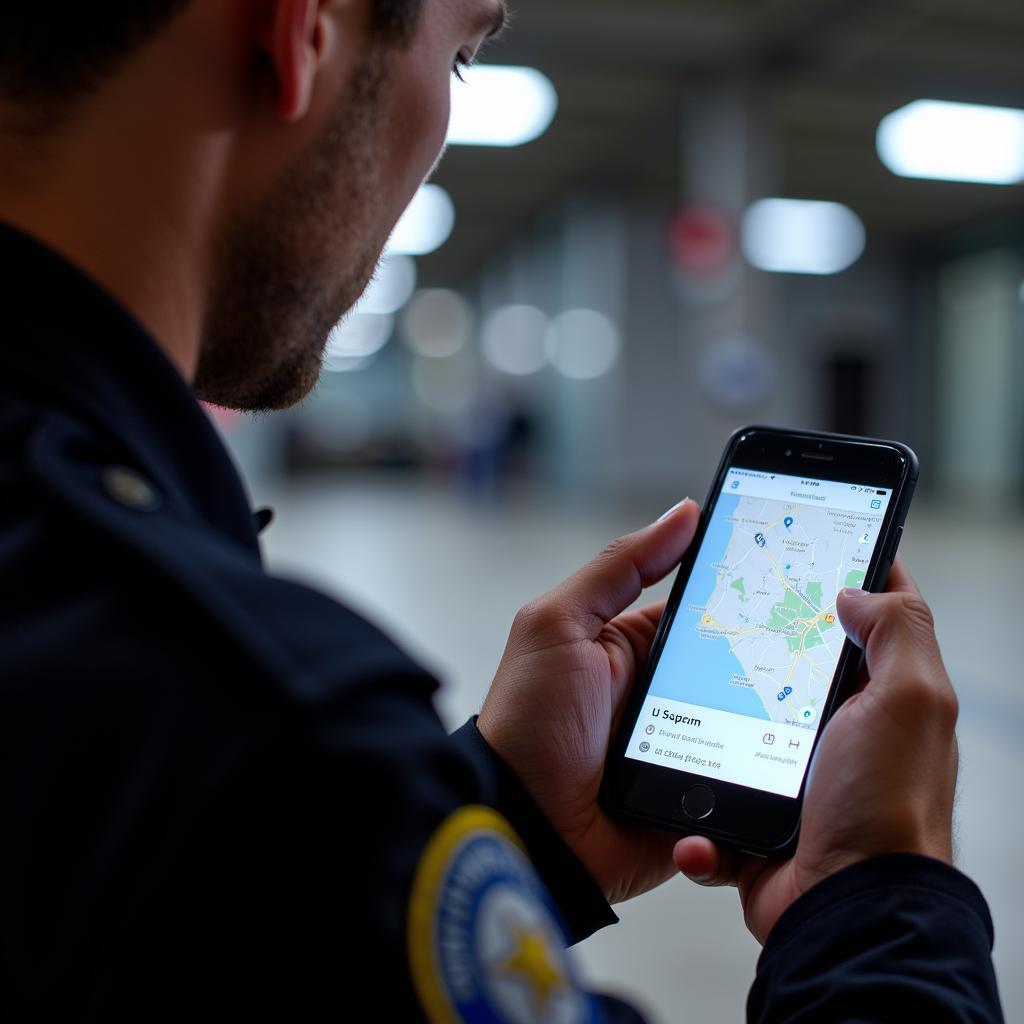If you’re wondering, “are police allowed search warrant anti theft app phone?”, you’ve come to the right place. This complex issue involves the intersection of law enforcement, technology, and personal privacy. We’ll explore the legal parameters surrounding police access to data from anti-theft apps on your phone, providing clarity on your rights and what to expect in various situations.
Understanding the Legal Landscape of Anti-Theft App Data
The legality of police accessing data from anti-theft apps like “Find My iPhone” or similar Android equivalents isn’t a simple yes or no answer. It depends heavily on the specific circumstances, the jurisdiction, and the type of data being sought. Generally, law enforcement needs a warrant to access the content of your phone, protected under the Fourth Amendment against unreasonable searches and seizures. are police allowed search warrant house anti theft app phone However, there are exceptions, such as exigent circumstances, where immediate action is necessary to prevent harm or destruction of evidence.
 Police Accessing Phone Data
Police Accessing Phone Data
What are Exigent Circumstances?
Exigent circumstances can include situations where there’s an imminent threat to life, a risk of evidence being destroyed, or a hot pursuit of a suspect. If police believe such circumstances exist, they may access your phone without a warrant. However, the justification for bypassing a warrant is subject to later judicial review.
Can Police Compel You to Unlock Your Phone?
This is another grey area. While the Fifth Amendment protects you from self-incrimination, which could include providing the passcode to your phone, there are legal arguments that could compel you to unlock your phone using biometric authentication, like a fingerprint or facial recognition. The legal precedents on this are still evolving.
Navigating a Police Request for Your Anti-Theft App Data
If law enforcement requests access to your anti-theft app data, it’s crucial to remain calm and understand your rights.
- Ask for a Warrant: Politely inquire if they have a warrant. If they do, cooperate within the bounds of the warrant.
- Consult an Attorney: If you’re unsure about your rights or uncomfortable with the request, you have the right to consult with an attorney before providing any information.
- Document Everything: Note the officers’ names, badge numbers, and the agency they represent. Record the time and date of the interaction.
What Happens if I Refuse to Cooperate?
Refusing to cooperate can have consequences. If police have a valid warrant, refusal could lead to obstruction of justice charges. However, if they don’t have a warrant and are relying on an exception, refusing might protect your rights, but it’s essential to consult with an attorney to understand the potential risks and benefits.
The Role of Anti-Theft Apps in Investigations
Anti-theft apps can be invaluable tools for law enforcement in locating stolen devices and even apprehending criminals. The location data provided by these apps can pinpoint the whereabouts of a stolen phone, leading to the recovery of stolen property and potentially preventing further crimes.
“Anti-theft apps can be powerful tools for law enforcement, but their use must be balanced with individuals’ privacy rights,” says John Smith, a cybersecurity expert at SecureTech Solutions. “Clear legal guidelines and transparency are crucial to ensure responsible use of this technology.”
Conclusion: Protecting Your Rights in the Digital Age
Understanding the legal implications of police accessing your anti-theft app data is critical in today’s interconnected world. While these apps can be beneficial in assisting law enforcement, it’s essential to be aware of your rights and to exercise them appropriately. If you find yourself in a situation where police are requesting access to your phone data, remember to remain calm, ask for a warrant, and if necessary, consult an attorney. Knowing your rights is the first step towards protecting your privacy. are police allowed search warrant house anti theft app phone
FAQ
- Do police need a warrant to access my phone’s location data? Generally, yes. However, there are exceptions like exigent circumstances.
- Can I be forced to unlock my phone for the police? This is a complex legal issue, and the answer depends on the specific circumstances and jurisdiction.
- What should I do if police ask for my anti-theft app data? Ask for a warrant and consider consulting an attorney.
- Can anti-theft apps help recover stolen devices? Yes, they can be invaluable tools in locating stolen phones and other devices.
- Are there privacy risks associated with anti-theft apps? Like any technology that collects personal data, there are potential privacy risks. It’s crucial to understand the app’s privacy policy and settings.
- What are some examples of exigent circumstances? Imminent threat to life, risk of evidence destruction, or hot pursuit of a suspect.
- Can I refuse to give police my phone password? You can, but there may be legal consequences depending on the circumstances. Consult with an attorney to understand your rights.

